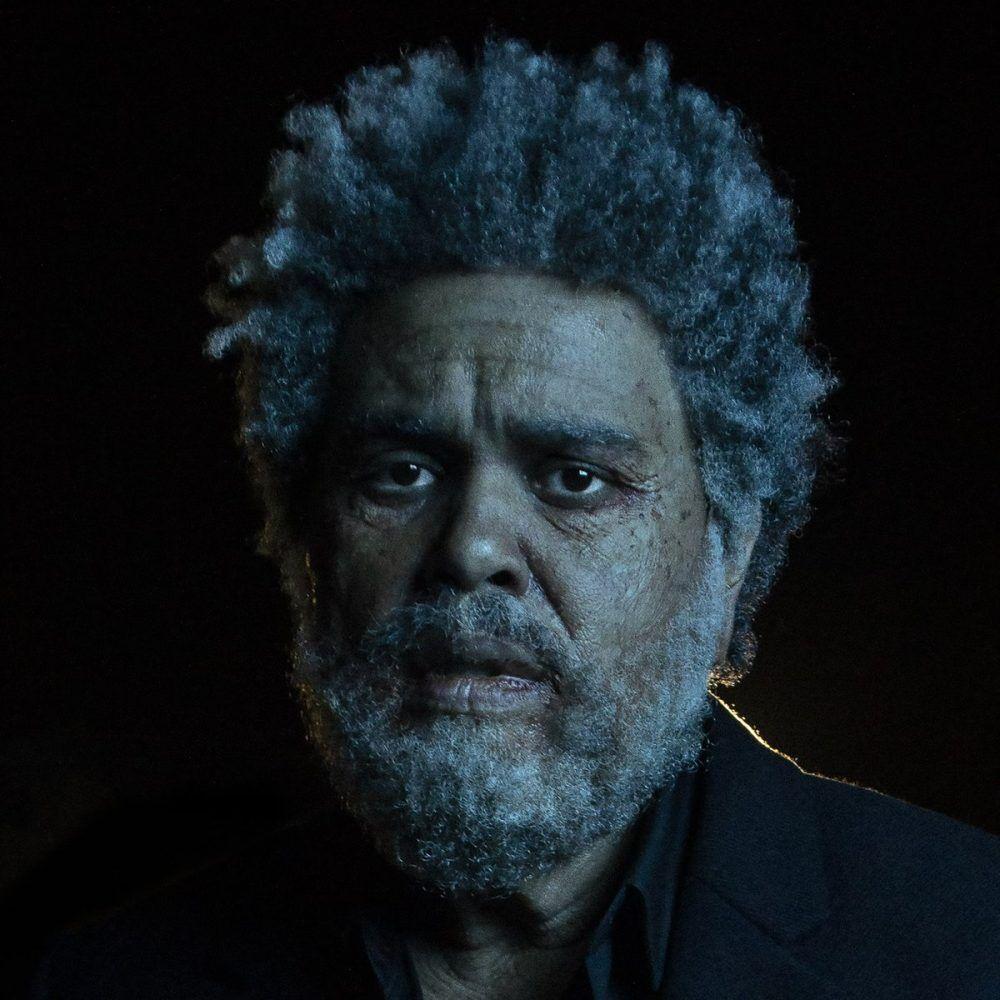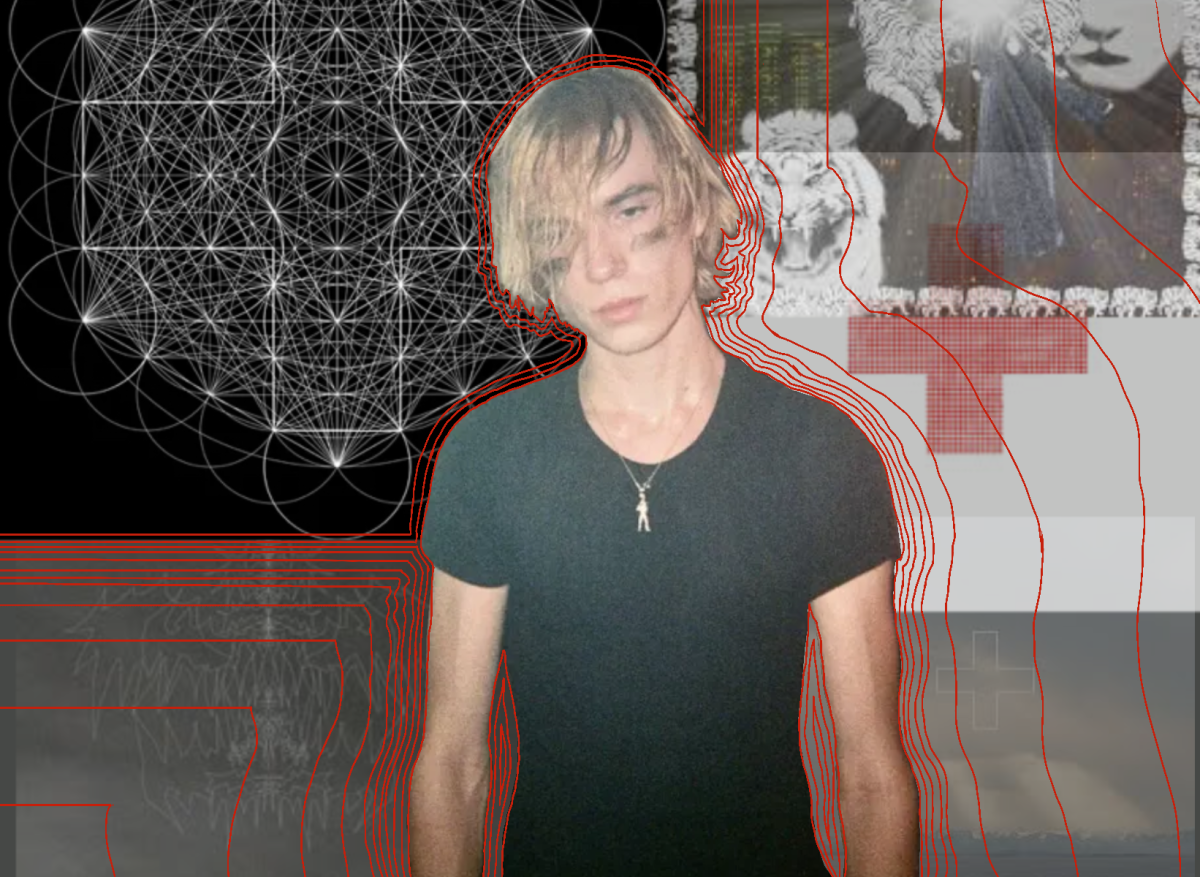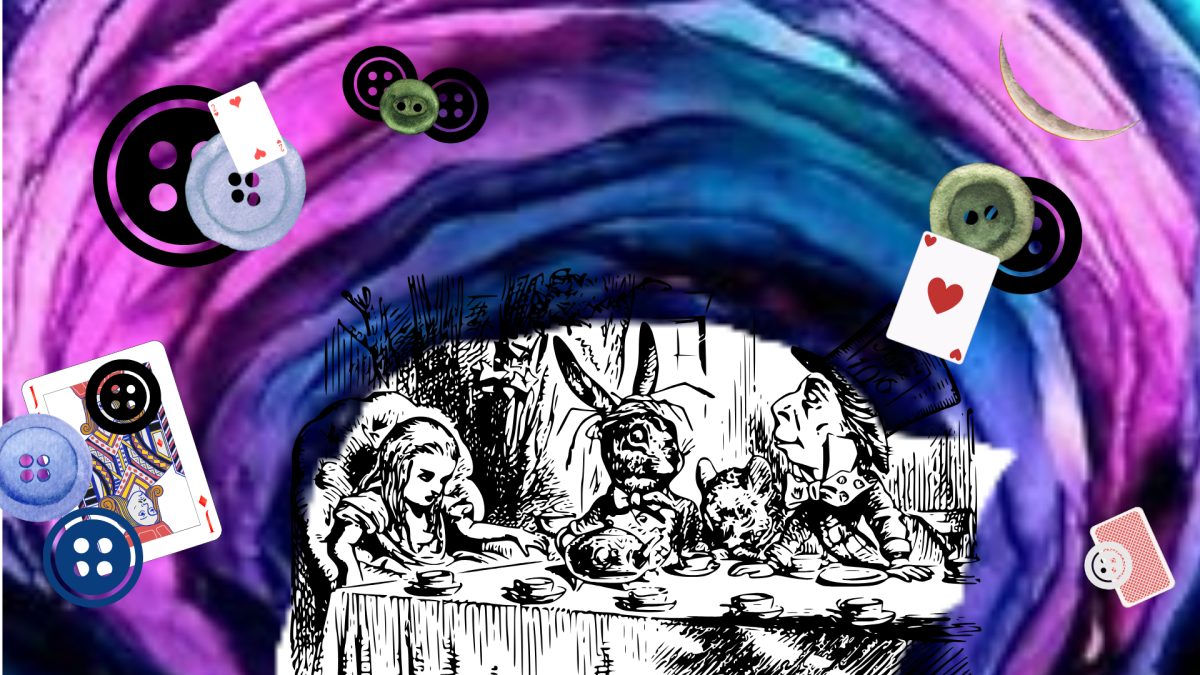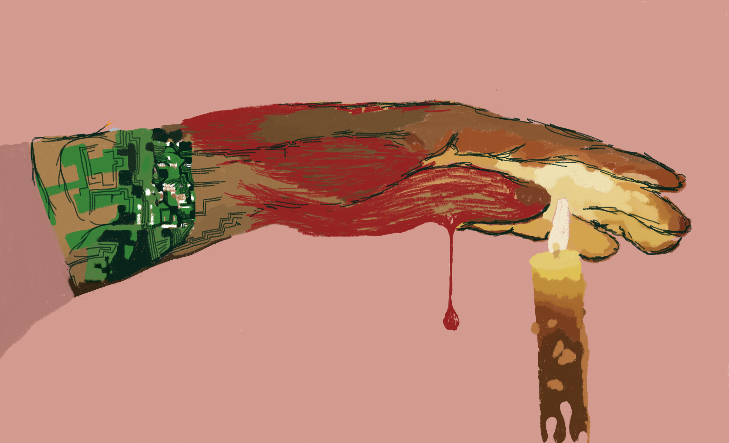The Weeknd released his instant classic 2020 album “After Hours” just as COVID-19 began to wreak havoc across the U.S., taking the lives of over 800,000 Americans and changing our collective way of living irrevocably. Two years later, not much has changed.
With life on hold, The Weeknd tried and failed three times to tour “After Hours” and was finally forced to shift to a stadium-only tour set over two years after the album came out. Touring in times like these with stale music is a no-go, so “Dawn FM” is here to fill the void: a 16-track, 51-minute pop journey narrated by the great Jim Carrey. With the project, The Weeknd continues to explore an ‘80s synth-pop aesthetic, and it fits him like a glove.
“Dawn FM” continues the narrative of “After Hours,” which ends with our protagonist overdosing on its final track “Until I Bleed Out.” During “Dawn FM” he’s in some semblance of limbo, or perhaps just the throes of a drug-induced loss of consciousness, which presents itself as a radio station, Dawn 103.5 FM, hosted by Carrey. The setup for the album is imaginative, but the quality of its music from song to song is just as uncertain as the ultimate fate of the protagonist.
The project never reaches the highs of “After Hours.” “Take My Breath,” the album’s lead single is a fantastic party track, but it doesn’t hold a candle to “Blinding Lights,” quite literally the biggest hit of all time. “Every Angel is Terrifying” has the makings of a top-three Weeknd song … for all of a minute and 10 seconds before the song becomes a literal advertisement for his next project, “After Life.”
Still, The Weeknd’s singles are never the best records on his albums and that remains true on “Dawn FM.” “How Do I Make You Love Me?” may have the best chorus on the album, and while producer Oneohtrix Point Never’s (OPN) decision to play with the pitch of The Weeknd’s voice may be divisive, it works incredibly well for the song and fits with the theme of this album occurring as the main character overdoses.
“Best Friends” is sneakily the standout song of the project. A dangerous track that harkens back to his “Trilogy” days more than any other song on the album, it’s the lone contribution from producer DaHeala, who was a key contributor on “After Hours” but is surprisingly absent on this project — the same is true for Metro Boomin. Instead, The Weeknd narrowed his collaborators down to just OPN and Max Martin, which explains why songs sound so similar.
While “After Hours” reflects a tightly focused creative vision, “Dawn” has a heaping helping of fat. Bland-to-mediocre songs like “Gasoline,” “Sacrifice” and “Don’t Break My Heart” add little to the narrative of the album and shouldn’t have made the cut. “A Tale By Quincy,” an interlude voiced by famed producer Quincy Jones, is also puzzling.
Jones’ story is unexpected and unwelcome. Known for how personal his work is, it’s unusual if not unprecedented for The Weeknd to feature someone else telling their story on one of his projects, and Jones’ remarks only loosely relate to The Weeknd’s situation — another example of addition by subtraction if it was left on the cutting room floor.
“Dawn FM” is the first Weeknd project to have features since 2016’s “Starboy,” with verses from Tyler, The Creator and Lil Wayne. The former’s contribution on “Here We Go… Again” is perfectly done. Tyler’s voice fits the track so well it feels like it was made for him, and he doesn’t overstay his welcome with a short verse. The Weeknd’s part on the song is pretty weak, but I can’t really argue against including it to flex about dating Angelina Jolie — though he could’ve been more subtle than repeating a variation of “my new girl, she a movie star” four times to really drive the point home.
Wayne features on “I Heard You’re Married,” and his verse is what one should expect from asking for a Wayne verse in the year of our Lord 2022: bad, dated, corny, take your pick. Ending his verse with “And tell hubby I’ll kill him, no hub cap” almost made his appearance so bad it was good. Yet another song that’s better off not being heard.
Throwing away the chaff, the rest of the tracklist really shines. “Is There Someone Else?” has an interesting narrative, as a more mature Weeknd is now on the other side of a toxic relationship, and its following song “Starry Eyes” functions so well as a companion track, most won’t notice when one becomes the other. The song offers a new level of vulnerability from The Weeknd and functions as a low point of the album.
“Less Than Zero” is an oddly upbeat and happy song considering its subject matter, and its position as the penultimate track invokes a feeling reminiscent of the old Irish saying, “May you be in Heaven half an hour before the Devil knows you’re dead,” as it essentially bookends the narrative structure of limbo with a bit of bliss for the protagonist before Jim Carrey signs the album off.
“Phantom Regret by Jim” has the strongest writing of any track on the album, and it makes the entire project worth the effort of a listen. Carrey’s serene, witty monologue invites reflection and growth, perfectly guiding our protagonist out of purgatory even as it breaks the fourth wall a bit to also address the current pandemic. At the same time it recontextualizes “Less Than Zero” and the project as a whole. With the final track, the meaning and purpose of the album finally becomes clear.
“Dawn FM” is about moving past one’s failures and finding happiness in all aspects of the human experience, including the pain. The songs are upbeat, catchy dance tunes despite their content because The Weeknd has come to peace with his past. While it takes a certain kind of death for the protagonist to gain that perspective, this isn’t the final chapter of his story. Rebirth awaits.
Hardcore fans miss the “Trilogy” Weeknd, but he’s determined to move forward into the light. While this project may have been one of the weaker additions to his discography, it perfectly sets up what’s to come next.














